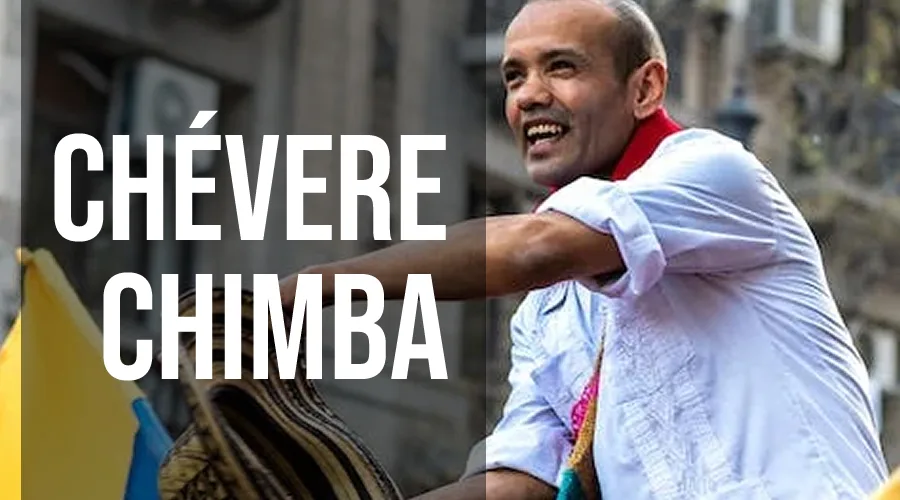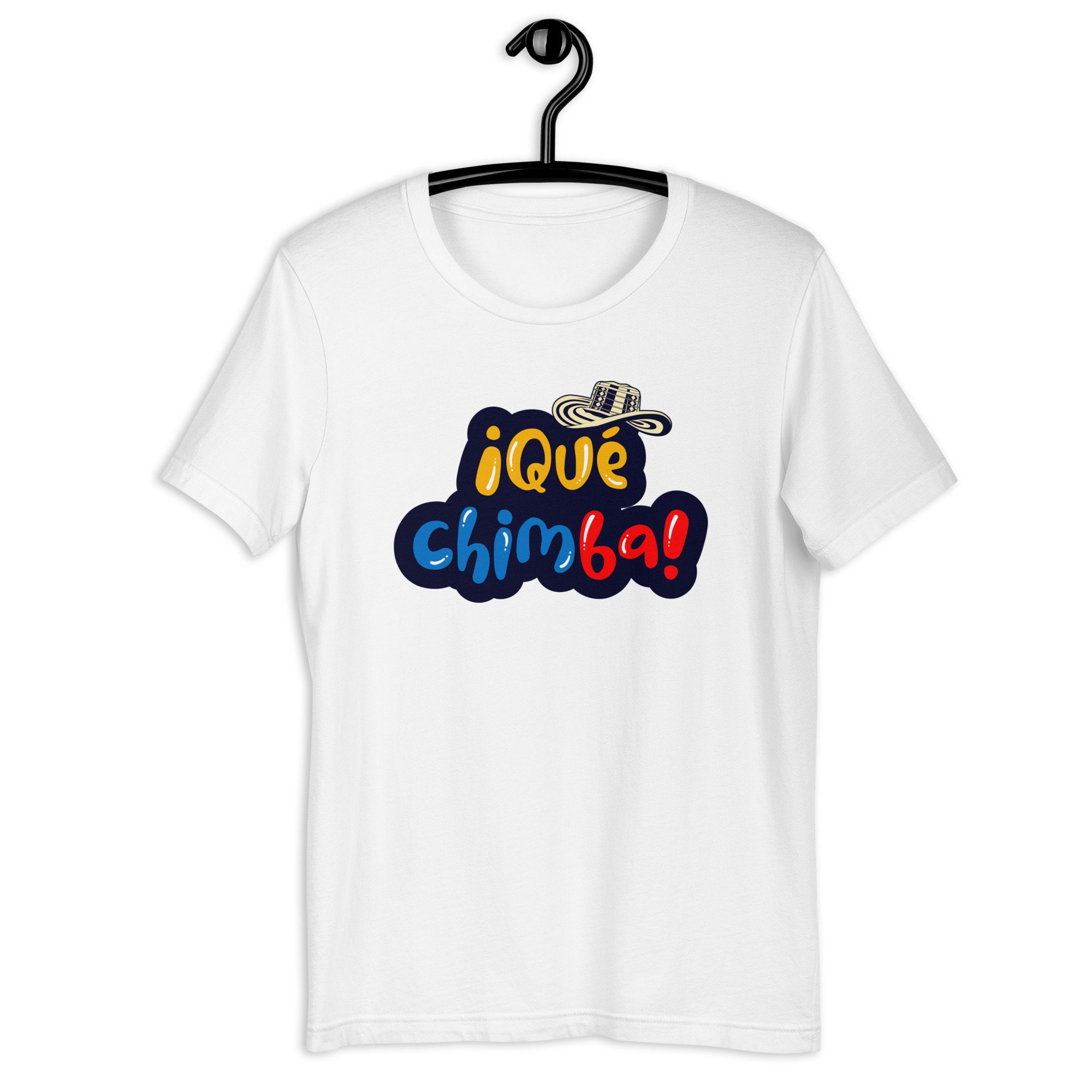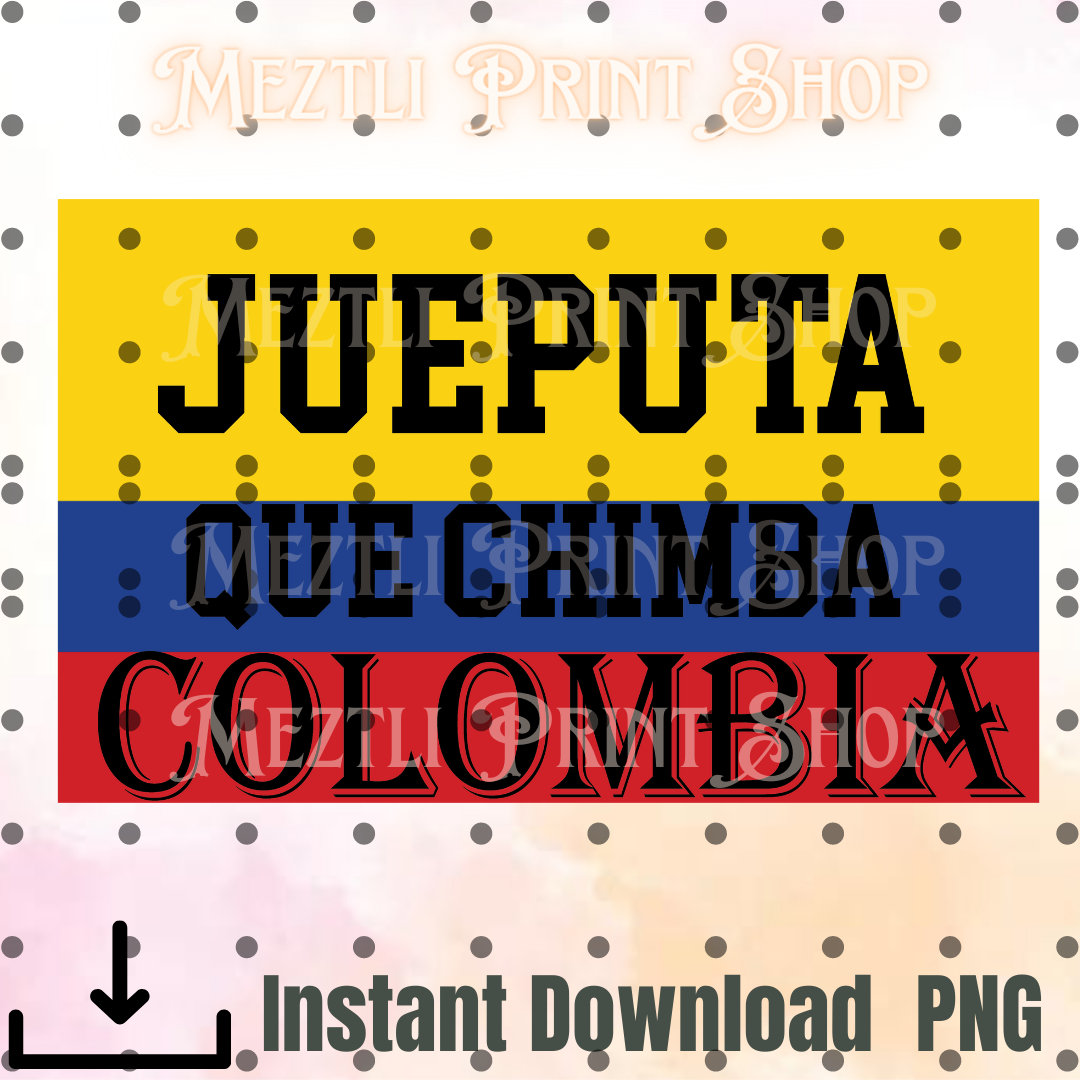What Is "Cara De Chimba" In Colombia? Understanding The Meaning And Cultural Context
Mar 29 2025
Have you ever come across the phrase "Cara de Chimba" while exploring Colombian culture or language? If you're unfamiliar with this term, you're not alone. "Cara de Chimba" is a colloquial expression that holds deep cultural significance in Colombia, often used in everyday conversations. In this article, we'll delve into the meaning of "Cara de Chimba," its origins, and how it fits into the broader tapestry of Colombian slang.
Colombian slang is rich and diverse, reflecting the country's vibrant culture and history. Each region in Colombia has its own unique dialect and expressions, making it a fascinating linguistic landscape to explore. Understanding terms like "Cara de Chimba" provides valuable insights into the cultural nuances that shape Colombian identity.
This article will guide you through the origins, usage, and cultural relevance of "Cara de Chimba," ensuring you have a comprehensive understanding of this intriguing phrase. Whether you're a language enthusiast, a traveler, or simply curious about Colombian culture, this article is designed to provide you with valuable insights.
Read also:Deandre Hopkins Unveiling The Truth About His Sexual Orientation
Table of Contents
- The Origin of "Cara de Chimba"
- What Does "Cara de Chimba" Mean?
- How Is "Cara de Chimba" Used in Everyday Life?
- Cultural Context of "Cara de Chimba"
- The Historical Background of Colombian Slang
- Regional Differences in Colombian Slang
- Examples of "Cara de Chimba" in Conversations
- Related Terms and Expressions
- Why Is Understanding "Cara de Chimba" Important?
- The Future of Colombian Slang
The Origin of "Cara de Chimba"
The phrase "Cara de Chimba" has its roots deeply embedded in Colombian colloquial language. "Chimba" itself is a slang term that has evolved over time, often used to describe something extraordinary or exaggerated. The word "cara" translates to "face" in English, making "Cara de Chimba" literally mean "face of exaggeration."
This expression emerged as a way to describe someone who is overly dramatic or expressive, often in a humorous or lighthearted manner. Its origins can be traced back to the street conversations of Colombian cities, where language evolves rapidly to reflect the daily lives of its people.
Historical Usage of "Chimba"
While "Chimba" has been part of Colombian slang for decades, its meaning has shifted slightly over time. Initially, it was used to describe something impressive or amazing. However, when paired with "cara," it takes on a more nuanced meaning, focusing on facial expressions and exaggerated reactions.
What Does "Cara de Chimba" Mean?
"Cara de Chimba" refers to a facial expression that conveys disbelief, surprise, or exaggeration. It is often used to describe someone who reacts dramatically to a situation, whether it's positive or negative. For example, if someone wins the lottery and reacts with an overly excited expression, they might be described as having "Cara de Chimba."
Understanding the meaning of this phrase requires an appreciation of its cultural context. In Colombia, humor and exaggeration are common in daily interactions, making "Cara de Chimba" a relatable and widely used expression.
Breaking Down the Phrase
- Cara: Face or expression
- Chimba: Exaggeration or something extraordinary
Together, these words create a vivid image of someone whose facial expression speaks volumes about their reaction to a situation.
Read also:Douyin Cat The Ultimate Guide To The Viral Sensation Taking Over The Internet
How Is "Cara de Chimba" Used in Everyday Life?
In everyday Colombian life, "Cara de Chimba" is often used humorously to describe someone's reaction to unexpected events. It can be used in a variety of contexts, from family gatherings to workplace conversations. For example:
- At a family dinner, when someone shares surprising news, others might laughingly comment on their "Cara de Chimba."
- In the office, if a colleague reacts dramatically to a minor issue, their coworkers might tease them for their "Cara de Chimba."
This phrase adds a layer of humor and relatability to conversations, making it a staple in Colombian social interactions.
When to Use "Cara de Chimba"
While "Cara de Chimba" is widely used, it's important to consider the context. It's most appropriate in informal settings where humor and lightheartedness are welcome. Avoid using it in formal or serious situations, as it may come across as inappropriate.
Cultural Context of "Cara de Chimba"
Colombian culture is rich with expressions that reflect the country's unique blend of humor, warmth, and creativity. "Cara de Chimba" is just one example of how language serves as a mirror to cultural values. In Colombia, expressing emotions openly and humorously is a way of life, and this phrase captures that essence perfectly.
Understanding the cultural context of "Cara de Chimba" helps outsiders appreciate the nuances of Colombian communication styles. It highlights the importance of humor and exaggeration in building connections and fostering camaraderie.
Cultural Values Reflected in Language
- Humor as a social glue
- Open expression of emotions
- Appreciation for the absurd and unexpected
The Historical Background of Colombian Slang
Colombian slang has a long and fascinating history, shaped by the country's diverse cultural influences. From indigenous languages to Spanish colonization, Colombian slang reflects the complex tapestry of its past. Terms like "Cara de Chimba" are part of this linguistic evolution, evolving alongside the country's social and cultural dynamics.
Over the years, Colombian slang has incorporated elements from African, Indigenous, and European languages, creating a unique linguistic identity. This diversity is what makes Colombian slang so rich and dynamic.
Key Influences on Colombian Slang
- Indigenous languages
- African influences
- Spanish colonization
- Modern urban culture
Regional Differences in Colombian Slang
Colombia is a country of diverse regions, each with its own unique dialect and expressions. While "Cara de Chimba" is widely understood across the country, its usage may vary slightly depending on the region. For example:
- In Bogotá, "Cara de Chimba" might be used more frequently in urban settings.
- In Medellín, the expression might take on a slightly different connotation, emphasizing local humor.
These regional variations highlight the richness of Colombian language and culture, making it a fascinating subject for linguistic exploration.
Regional Expressions to Know
- Chocó: "Cara de Chimba" with a focus on coastal humor
- Antioquia: Emphasis on clever wordplay
- Cundinamarca: More formal usage in urban areas
Examples of "Cara de Chimba" in Conversations
To better understand how "Cara de Chimba" is used in real-life conversations, here are some examples:
- Friend 1: "Did you see his reaction when he won the game?"
- Friend 2: "Oh, total Cara de Chimba! He was jumping everywhere!"
- Family Member: "Your face when you heard the news was pure Cara de Chimba!"
These examples illustrate how "Cara de Chimba" adds color and humor to everyday interactions, making it a beloved part of Colombian slang.
Related Terms and Expressions
Beyond "Cara de Chimba," Colombian slang is filled with fascinating expressions that reflect the country's vibrant culture. Some related terms include:
- Parche: Group of friends
- Chévere: Cool or awesome
- Plomo: Bullet, often used metaphorically
These terms, like "Cara de Chimba," contribute to the richness of Colombian language and culture, offering insights into the daily lives of its people.
Why Is Understanding "Cara de Chimba" Important?
Understanding phrases like "Cara de Chimba" is crucial for anyone interested in Colombian culture. It provides a window into the country's social dynamics, communication styles, and values. For travelers, language learners, or business professionals, knowing these expressions can enhance cultural competence and foster meaningful connections.
In a broader sense, understanding slang and colloquial expressions helps bridge cultural gaps, promoting mutual understanding and respect. It's a reminder that language is not just a tool for communication but a reflection of the people who use it.
The Future of Colombian Slang
As Colombia continues to evolve, so too will its slang. The influence of globalization, technology, and urbanization will undoubtedly shape the future of expressions like "Cara de Chimba." However, the core elements of humor, creativity, and cultural identity will remain at the heart of Colombian language.
For language enthusiasts and cultural explorers, staying attuned to these linguistic changes offers a glimpse into the ever-evolving tapestry of Colombian culture. By embracing terms like "Cara de Chimba," we can deepen our appreciation for the richness and diversity of this remarkable country.
Predicted Trends in Colombian Slang
- Incorporation of digital slang
- Growing influence of urban culture
- Preservation of traditional expressions
Conclusion
In conclusion, "Cara de Chimba" is more than just a phrase; it's a reflection of Colombian culture, humor, and identity. By understanding its meaning, usage, and cultural context, we gain valuable insights into the lives of Colombians and the vibrant language they speak.
We encourage you to explore more about Colombian slang and culture by engaging with local communities, traveling to Colombia, or simply diving deeper into its rich linguistic heritage. Don't forget to share this article with friends who might be interested in learning more about Colombian culture. Together, let's celebrate the beauty and diversity of language!


